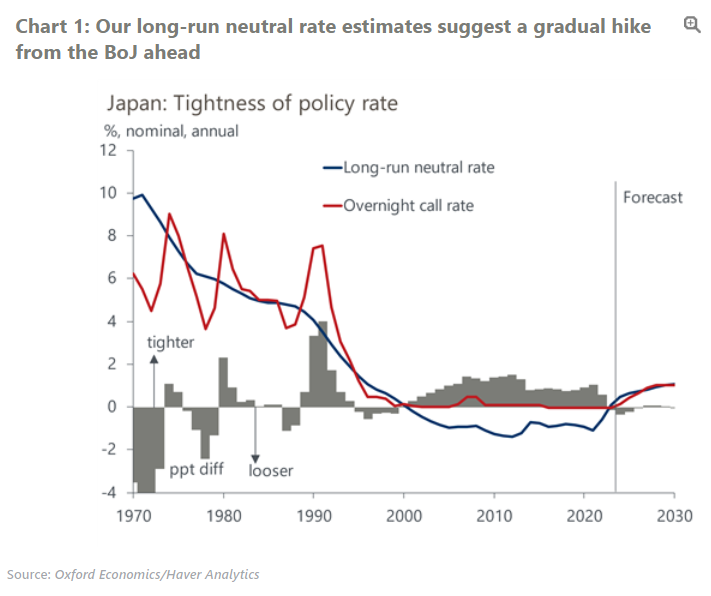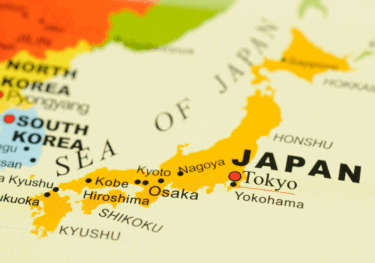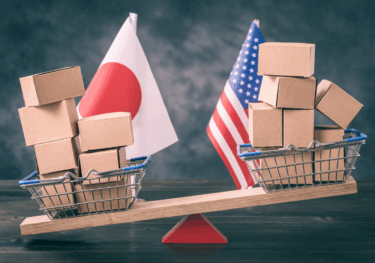Japan’s neutral interest rate is rising, but not by much
We estimate that Japan’s nominal neutral interest rate – the rate consistent with monetary policy that is neither stimulative nor restrictive – has risen somewhat since 2022, marking a striking reversal from its decades-long slide. More importantly, we project it to continue rising gradually, to around 1% by 2030 from 0% in 2023.
What you will learn:
- Higher inflation expectations are one of the main reasons behind the recent increase in the nominal neutral rate. We believe that inflation expectations will continue to slowly edge up in the coming years amid robust wage gains, contributing to the projected neutral rate’s rise.
- Stripping out inflation expectations, the real neutral rate has risen only modestly in recent years. We think Japan’s demographic headwinds and weak productivity growth all but banish a sustained return to positive real neutral rates throughout our forecast to 2050. But in the next few years, increases in net foreign assets and the Bank of Japan’s step down in quantitative easing are likely to drive the rate slightly higher.
- Neutral rate estimates are inherently uncertain. Still, our approach provides a framework that can inform our view of the path for long-run interest rates, and our sensitivity and scenario analyses offer a useful gauge of the risks around our estimates.

Tags:
Related Posts

Post
Tariffs and Politics Leave the BoJ Powerless in Japan
The Bank of Japan kept its policy rate at 0.5% at its July meeting. We continue to think the BoJ will exercise caution on rate hikes despite still-high inflation and a recent trade deal with the US.
Find Out More
Post
US-Japan Trade Deal Fails to Shift Japan’s Growth Outlook
We estimate that the US's effective tariff rate on Japanese products is around 17%, in line with our baseline assumption. Lower tariffs on autos are a positive, given the sector's significant contribution to the economy and its broad domestic supporting base
Find Out More
Post
Japan’s Rising Political Instability Will Undermine Fiscal Discipline
The ruling Liberal Democratic party (LDP) and its partner Komeito lost their majority in Japan's upper house elections on July 20. Although Prime Minister Shigeru Ishiba will likely stay to avoid political gridlock, especially to complete tariff negotiations with the US, the political situation has become fluid and could lead to a leadership change or the reshuffling of the coalition.
Find Out More